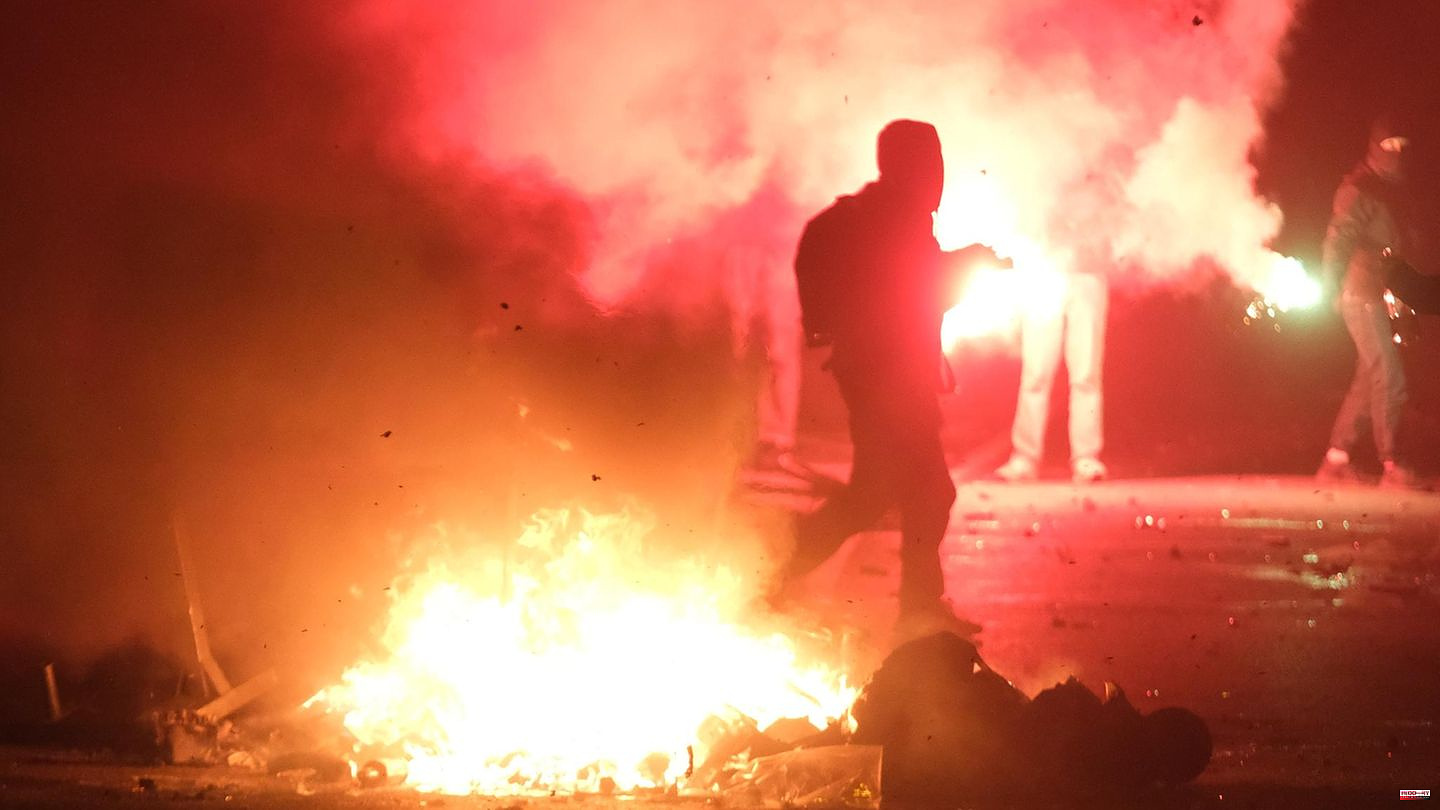In Germany, for the first time since 2019, people celebrated New Year's Eve largely without restrictions caused by the pandemic. The police and emergency services drew a mixed preliminary balance on Sunday night. For example, while the police in Saxony reported "quiet overall" New Year's Eve celebrations, the Berlin police recorded "significantly" more operations than in the past two years. There were repeated attacks on police officers and firefighters.
According to a spokesman for the Berlin police, the return of permitted pyrotechnics on New Year's Eve in the capital was noticeable. Many operations involved fires in homes and vehicles. People are on the streets and apparently bought a lot of fireworks. Both police officers and firefighters were injured by fireworks during operations, the spokesman added.
The Berlin police wrote extensively about the operations in the online service Twitter. Accordingly, in several parts of the city, vehicles and buildings as well as people were shot at with fireworks.
The Berlin fire brigade wrote on Twitter that a fire engine was massively damaged by the "fire from pyrotechnics". When a coach caught fire in the Neukölln district, the emergency services encountered "a large, aggressive crowd" and "were shot at with pyrotechnics," the fire department said. When deployed to a burning street barricade, the emergency services were attacked with stones and iron bars.
The control center was staffed with 70 employees. By midnight, 674 emergency calls had already been received, the Berlin fire department said. The larger operations included burning attics of two apartment buildings in the Spandau and Neukölln districts. In total, the Berlin fire brigade drove more than 1700 operations at the turn of the year, almost 700 more than a year ago during the Corona restrictions. This emerges from a preliminary balance sheet from New Year's morning.
According to this, 22 people were injured by firecrackers and rockets. In 38 cases, emergency services were attacked and 15 of them were injured, one of the injured rescuers had to go to the hospital: "There is no justification for this behavior and I can only condemn it in the strongest possible terms," said state fire director Karsten Homrighausen.
Fires in particular were reported from the other federal states. A woman died in an apartment fire in Balve, North Rhine-Westphalia. However, the cause of the fire is still unclear. In Unna, a two-year-old child was seriously injured by fireworks. The boy was on the street with his parents around midnight to celebrate the turn of the year, according to the police. "A pyrotechnic object got into the hood" of the child. Even before the parents could get the firecracker out, it exploded. The family immediately sought out a nearby hospital. The boy was found to have burns on the back of his head. He was seriously injured and transferred to an accident clinic. Police are now looking for witnesses to the fireworks incident.
In Thuringia, two men were seriously injured by "improper use of pyrotechnics": In the district of Gotha, according to the police, a 42-year-old lost both his forearms due to the detonation of "a ball or pipe bomb". A 21-year-old in the Schleiz district also experimented with a so-called ball bomb, which exploded uncontrollably and ripped off his hand, the police said.
In Leipzig, a 17-year-old was fatally injured on New Year's Eve while handling fireworks. The young man had succumbed to his injuries in the hospital, the Leipzig police said on Sunday. Third-party negligence has so far been ruled out in this case. The officials did not initially give any further details.
The Saxony police spoke of "smaller fires due to misdirected pyrotechnics". According to the police headquarters in southern Hesse, the number of operations due to "riots, fights and other disputes" was "on the usual 'weekend level'" until midnight.
In Saxony-Anhalt, a man in Weißenfels suffered serious injuries when a firecracker was set off. He "blew off his left hand completely, there was nothing left to save," said the senior physician of the special clinic for hand surgery and burn injuries of the BG Klinikum Bergmannstrost, Cord Corterier, the German Press Agency. He was also injured in his right hand and lost his left sight.
Around 15 people were treated in hand surgery on Sunday night. They operated on people all night long, Corterier said. Due to the ban on selling firecrackers and the like in the wake of the corona pandemic, there have been significantly fewer injuries on New Year's Eve in the past two years. "This year started out as bad as before."
Also in Saxony-Anhalt, a pedestrian was hit by a car while lighting fireworks on the street and fatally injured. The 42-year-old was thrown several meters across the road by the force of the impact early Sunday morning, the police said. He died at the scene of the accident in Schönebeck (Elbe). The 61-year-old driver committed a hit-and-run after the accident. A witness followed him and, according to the police, was able to persuade him to turn back. After that, the 61-year-old measured 1.86 per mille. He was given a blood sample and driver's license.
According to the fire brigade, there were "significantly more injuries from fireworks" in Bochum than in previous years. Overall, the turn of the year was "very busy" because of the elimination of the restriction on firecrackers.
According to the police, there were no serious incidents in Stuttgart, where a fireworks ban zone had been set up within the city ring. The operational concept worked, "we are very satisfied with the course of the New Year's Eve so far," said police spokesman Timo Brenner.












